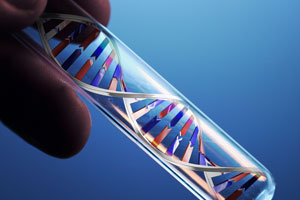NEW recommendations from the US place more onus on biobanks to inform individuals about any serious health conditions discovered in their genetic data and samples.
The recommendations are similar to amendments currently being considered to the NHMRC’s national statement on ethical research.
Professor Loane Skene, a law professor at the University of Melbourne and member of the Australian Health Ethics Committee, said two chapters of the NHMRC’s National Statement on Ethical Conduct in Human Research relating to bioscience research were currently being revised. (1)
Professor Skene, who has a particular interest in health law and bioethics, said the revisions would outline the obligations on biobanks to follow up individuals when important health information was discovered from genetic data. She said biobanks also needed to consider whether those obligations extended beyond the individual to family members or even the wider community if information discovered had serious health implications.
The US recommendations, published recently in Genetics in Medicine, were aimed solely at the responsibilities of biobanks and researchers to individuals, Professor Skene said. (2)
The US authors said their article broke new ground by “articulating significant new responsibilities for the biobank itself, considering how all major responsibilities should be addressed within the biobank research system”.
Biobanks should be explicit about their approach to incidental findings (IFs) and individual research results (IRRs) and whether they planned to return this information to contributors, they said.
“We challenge the conventional view that would generally locate nearly all responsibilities with the primary researchers who collected the data and samples and place few, if any, responsibilities on the biobank itself.”
The authors outlined the criteria under which all IFs and IRRs should be returned to the contributor. These included the discovery of health conditions that could be prevented or managed differently.
“Findings should be returned in a form that is understandable to the contributor and useful to a physician or other clinician, such as a genetic counselor, with whom the contributor may choose to pursue the finding”, they wrote.
“This will generally mean that the finding should be returned both through direct conversation with the contributor and in writing, to minimize miscommunication and facilitate follow-up.”
Researchers should be prepared to offer clinical referrals, including genetic counselling, where appropriate.
They said research and biobank funders and regulators had a crucial role in making sure that research and biobank budgets adequately supported responsible management of IFs and IRRs.
Professor Skene said the cost of contacting individual contributors would be high in terms of both money and time.
The NHMRC’s biobanks information paper includes a section on data management, such as providing feedback of individual results to contributors. (3)
The paper says that biobanks “need to have a clearly articulated policy on the nature of the feedback to participants and, if feedback of either interim and/or final results is planned, whether it will be in the form of individual or aggregate results”.
An NHMRC spokeswoman said the issues raised by the US authors were important ones that the NHMRC was aware of.
“NHMRC is currently doing important work in the field of genomics, and will examine the ethical, social and legal issues associated with whole of genomic sequencing”, she said.
– Kath Ryan
1. NHMRC: Public consultation on proposed revisions to the National Statement on Ethical Conduct in Human Research 2007
2. Genetics in Medicine 2012: Online 15 March
3. NHMRC 2010: Biobanks Information Paper
Posted 26 March 2012

 more_vert
more_vert